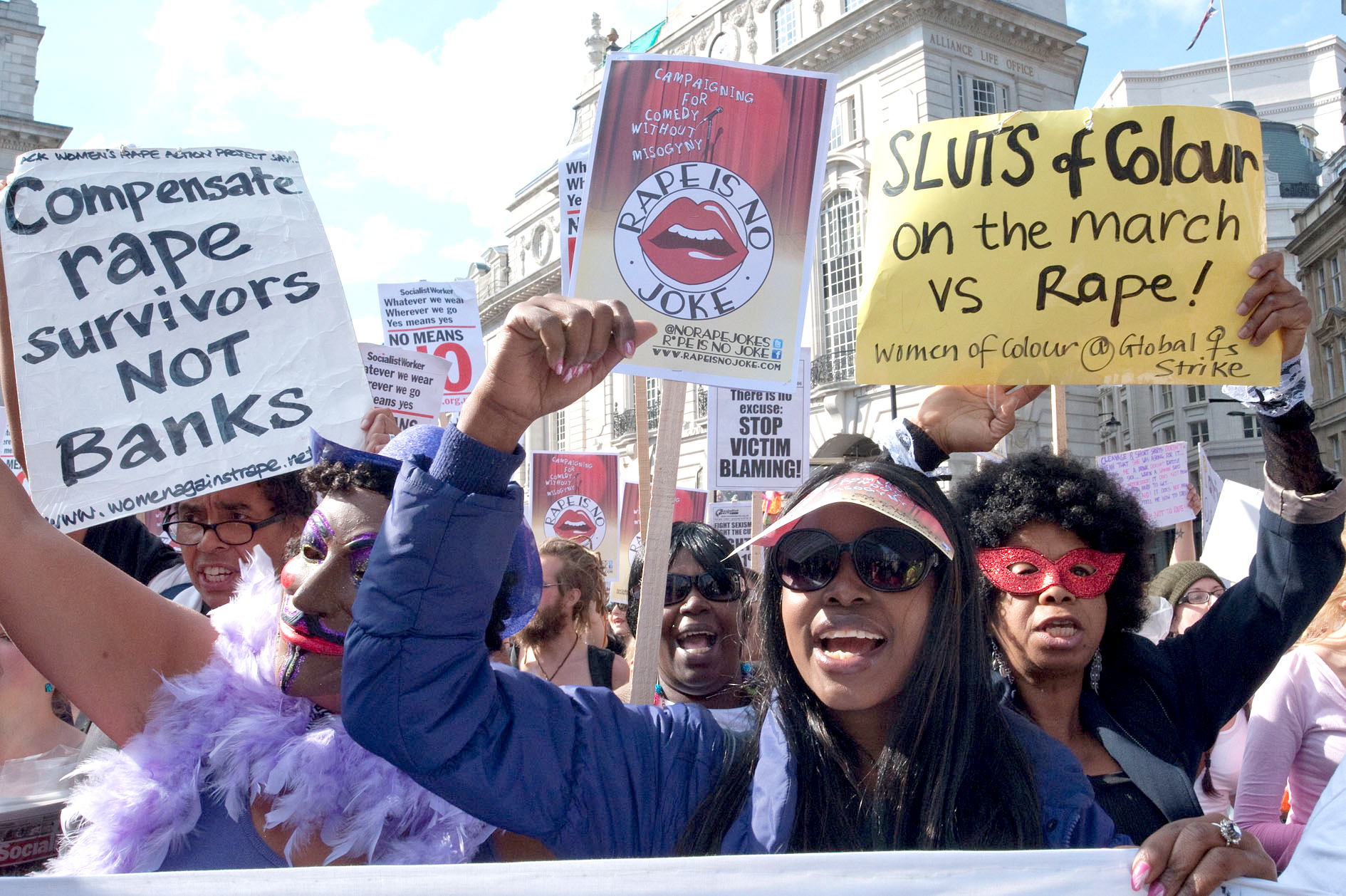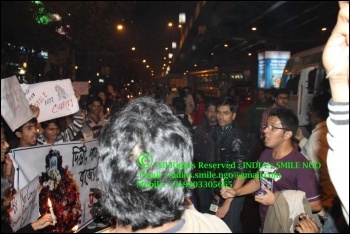The brutal gang rape and murder of a female student in India has provoked daily mass protests of women and men across the country to demand justice and stop violence against women. The protesters have also railed against police and political corruption and the oppression of women which is rooted in both India’s feudal legacy and its modern capitalist development. New Socialist Alternative (the Socialist Party’s sister organisation in India), which has long campaigned for women’s rights, argues, in the following extracts from their leaflet, for system change to end the oppression of women.
The unprecedented anger in Delhi and across India against the gang rape of the medical student is an expression of the seething discontent that has been building against the system for a long time.
The response of the authorities to this spontaneous expression of anger has been to use the police to brutally repress demonstrators.
The heinous crime of rape happens everywhere: it happens inside homes, in families, in neighbourhoods, in police stations, and it is increasing.
Modern industrial times have increasingly brought women out of the confines of their homes and women’s roles have changed phenomenally, but the ruling capitalist system, driven and controlled by the values of feudalism and patriarchy, has yet to come to terms with this change.
Across the political spectrum there is a contempt and impunity towards women and their rights. The system’s mind-set perpetuates hatred against women and disregards the fundamental right of women for freedom.
Violence against women in India is particularly rampant amongst the marginalised communities such as Daliths, Adivasis, women workers in unorganised workplaces, sex workers, etc, for which the conviction rate is abysmally low or non-existent, with the perpetrators largely roaming free.
Most of the incidents of rape and sexual assault go unreported because of the feudal values that dominate Indian culture and society. The custodial torture and rape and the sexual crimes committed by state agencies barely evokes much indignation.
Solutions
While the perpetrators of such crimes must be punished, the solution does not lie in reverting back to medieval practices such as the death penalty or castration.
Nor does the solution lie in increasing police surveillance. This will only end up empowering the government with unprecedented powers and to act with impunity against working people. For so widespread a crime band aid solutions are not the answer.
We blame the system and the ruling class for this malady as they have thoroughly failed to develop society beyond feudal and medieval values and practices.
Violence against women is a product of a diseased system called capitalism, where people are conditioned to see women as inferior and to see women’s bodies as commodities or objects meant for pleasure.
A campaign against rape in isolation from all other aspects of women’s oppression will not work. Rape, like domestic violence and sexual harassment, is a symptom of a deeply unequal class-based society that leads some men to think that they can control women, including sexually. This is reinforced by women’s material inequality and lower status in society.
We must challenge sexism and through the process of struggle, which will see millions of people question the brutal, sexist and exploitative capitalist society in which we live, look for a socialist alternative.
- Paul Murphy, MEP, Socialist Party (CWI, Ireland) recently addressed the European Parliament on the caste discrimination suffered by Daliths and the impact of neoliberal reforms on the working people of India. See www.socialistworld.net
- Rape is the biggest crime in India: 24,206 rape cases in 2011.
- Incidents of rape have increased by 791% since 1971.
- Only 50% of rapes are reported.
- A rape occurs every 20 minutes. A child is raped every 76 minutes.
- Conviction rates for rape fell from 41% in 1971 to 27% in 2010.
- Among 53 cities Delhi accounted for 13.3% (4,489) of the total rape crimes followed by Bengaluru (5.6%) and Hyderabad (5.5%).










